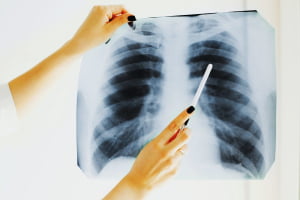Investment In Scanners ‘Needed For English Hospitals’
 Many English NHS hospitals are dealing with a “huge backlog” of scans, according to a recent report from the Guardian.
Many English NHS hospitals are dealing with a “huge backlog” of scans, according to a recent report from the Guardian.
Using freedom of information requests, the newspaper discovered that there are more than 600,000 people in the country waiting for CT, MRI and other scans at the moment, with the backlog having been made worse by the Covid-19 pandemic.
The news provider also revealed that more than half of all patients who are referred for imaging diagnostics are waiting for over six weeks to have a scan.
There has been a significant increase in the numbers of people waiting longer than six weeks in the past year, with 20,988 patients waiting for this length of time in May 2019, compared to 326,525 who waited this long in May of this year.
Many NHS providers told the publication that there is a dire need for investment in new imaging technology, with many scanners that are currently in use “faulty and unreliable, causing delay, disruption and added anxiety for patients”.
Deputy chief executive of NHS Providers Saffron Cordery told the newspaper that the UK is also behind other nations in terms of the number of operational CT scanners it has.
“The pressures are likely to intensify in the coming months as more people are referred for scans, reflecting pent up demand that didn’t surface during the initial surge of Covid-19 cases,” she revealed.
As a result, Ms Cordery said that hospital bosses believe that there is an urgent need for more investment in MRI and CT scanners, X-ray machines and ultrasound equipment.
Of course, the Covid-19 pandemic has added extra complexities to the process of scanning patients, with the need to ensure the safety of patients and staff alike by maintaining social distancing where possible and other infection prevention control rules.
Meanwhile, Dr Caroline Rubin, told the Guardian that a lack of equipment is just one of the issues, the other is having the appropriately trained staff to operate the scanners and to analyse the scans afterwards.
“So not just radiologists but radiographers, it is a whole team approach that we need to get right,” she stated.
Of course, there is plenty of work happening in relation to the use of new technology for patient diagnosis and scanning.
Cloud image sharing can be used to safely share scans with patients using CIMAR’s patient portal and consultants of any discipline can use our MDT functionality to remotely review and assess cases reducing the risk to hospital staff whilst improving efficiency to help with the backlog.
At the end of June, an £11 million project was launched to explore improving the diagnosis of lung cancer and other thoracic diseases using artificial intelligence (AI) technology. It’s being funded by UK Research and Innovation, Cancer Research UK and industry.
The project is being led by specialists at the University of Oxford, who will work with the NHS England Lung Health Check programme to combine clinical, imaging and molecular data for the first time using AI algorithms.
The hope is that this will allow patients with lung cancer to receive a more accurate and quicker diagnosis.